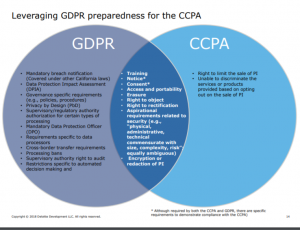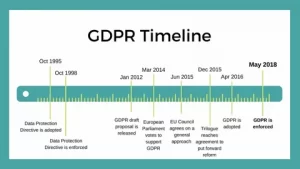Since the GDPR implementation in May 2018, the corporate world significantly impacts. Here is a look back at the adjustments as a result of the data privacy law.
Although GDPR compliance is a changing objective, legal clarifications which make through regulatory advice.
- The introduction of the General Data Protection Regulation acts as the impetus for a global flurry of data protection laws.
- More fines anticipate and imposes after the current round of General Data Protection Regulation enforcement in 2020.
- Compliance with data protection laws is not simply important from a legal standpoint. It also fosters consumer loyalty and trust in your business.
What does GDPR compliance look like?

The goal of the GDPR, an 88-page statute with 11 chapters and 99 sections, is to enhance and harmonize data privacy practices. It happens with regard to the data of EU citizens. Any business that collects and/or processes the personal data of any EU citizens is liable to GDPR. However, which is not just applicable inside the boundaries of the EU.
Because there are laws that apply to everyone, the Cybersecurity expert, “we attempt to run and start and get the essentials done to begin moving.” “General Data Protection Regulation is a continuous issue; it is not a snapshot in time. It’s a continual compliance process. However, you have to constantly move forward and reassess. There is probably still more to accomplish and maintain for even businesses that have done some effort.
Factors
The GDPR codifies data processing and collecting requirements, establishing broad regulations. Furthermore, that apply to the use of EU data even outside of EU borders. According to Kagin. CYBER EXPERT, every business should begin by taking the following factors into account while attempting to comply with General Data Protection Regulation:
- Expanded disclosure: Businesses must provide a thorough explanation of the data they gather. The reasons why they do so, and the methods through which it is kept and processed. This covers who else receives the data, how long it is kept, and how it is safeguarded.
- More user control must be given by businesses over what happens to users’ data. Users have the right to obtain a copy of their data. Additionally, they have the option to ask that their data be erased or that inaccurate data be corrected. Users also have the option to decide if their data will be shared with a third-party organization for reasons other than processing outsourcing.
- Downstream compliance: In order to avoid liability for the organization collecting the data. All third-party businesses and service providers must also comply with GDPR. In other words, if you legally acquire user data but contract out processing to a non-compliant business, you may still be held liable for infractions. This takes into account third-party cookies and how they could gather and monitor a variety of data.
The consequences of failing to comply with GDPR
Up to 10 million euros in fines or 2% of yearly global turnover from the prior year are the possible penalties for violating GDPR. That may be a deadly blow to many enterprises. But compared to this maximum punishment, enforcement has often been more lenient. But because of this imminent danger, GDPR compliance became a pressing issue that needs to resolve, especially for American businesses.
Tips for GDPR, CCPA, and data protection compliance

Even while it may seem hard to comply with these comprehensive requirements if you take little steps toward compliance. Your company will soon be there. To stay in motivation, bear in mind that perfect compliance doesn’t necessarily have to be the objective; simply making an attempt may be sufficient to fend off inspectors.
According to Kagin, “cases against companies that have been on a path and engage with authorities. It has been closed against them or their fines have been lowered.” You need a strategy. Make a risk assessment, identify the more dangerous parts of your processes, and begin tackling them. Follow a route. Not to worry.
- Make a risk analysis.
- Start with the most dangerous elements.
- Recognize the data and the purpose for collecting it.
- Create a structured program for governance.
The process of adhering to the GDPR, CCPA, and other data privacy laws is continuing. The fundamental objectives of every piece of law that approves and accepts remain the same. Notwithstanding the variations in the precise criteria. There are several things that businesses suppose and try, from appropriately managing the handling of personal data to avoiding a breach. Regardless of where your company locates, invest in your data infrastructure and governance. It is a smart way to start staying ahead of the regulatory curve and developing stronger relationships with your customers.







